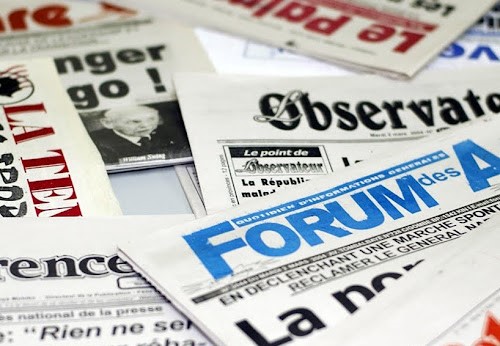The torture took place on 18 May in Boende, the capital of the northwestern province of Tshuapa, at the local headquarters of the ANR, a government agency in charge of security throughout the DRC.
After being summoned there, three journalists – Radio Tshuapa’s César Sabiti, Radio Libéral FM’s Samuel Mutela and Radio Boende’s Junior Batungole – were threatened by the ANR’s local director, forced to undress, placed in detention and then tortured and denied food for several hours.
Following their release, Mutela was admitted to a local health centre for treatment to the injuries he sustained while tortured.
“It is incredible that journalists were stripped naked and subjected to torture and other degrading treatment,” said Sadibou Marong the head of RSF’s Africa desk in Dakar. “This is a grim indicator of the deplorable state of press freedom and the risks that detained journalists now face at the ANR’s hands in the DRC. The authorities must conduct an impartial investigation, punish the perpetrators of these acts of torture, and put a stop to the intimidation of journalists, especially by the ANR, whose responsibility for the worst abuses against journalists is beyond dispute.”
The three journalists were summoned to the ANR’s local headquarters in connection with their participation in a Liberal FM broadcast entitled “Let’s talk about education” several days before in which they discussed irregularities during secondary school graduation exams.
Since the start of the year, at least ten journalists have been arrested or threatened by the ANR in violation of the law, under which only a prosecutor can summon a journalist for questioning on suspicion of committing a press offense or act of professional misconduct.
In practice, the ANR exercises close control over the news media and resorts to police intimidation methods and degrading treatment.
In another recent case, Jonathan Mesa Luma, the director of Radio Télévision Bannig et Développement (RTBD), and one of his journalists, Mardochée Tayeye, were detained and questioned by the ANR in April about a broadcast. They were released after several hours but were forced to surrender their recording of the offending broadcast.
This situation is all the more disappointing after hopes of greater press freedom were raised by last January’s five-day “national convention on communication and the media.” Despite President Félix Tshisekedi’s promises to “humanise the ANR,” RSF fears a return to the oppressive methods used under former President Joseph Kabila.
DRC is ranked 125th out of 180 courties in RSF’s 2022 World Press Freedom Index.

